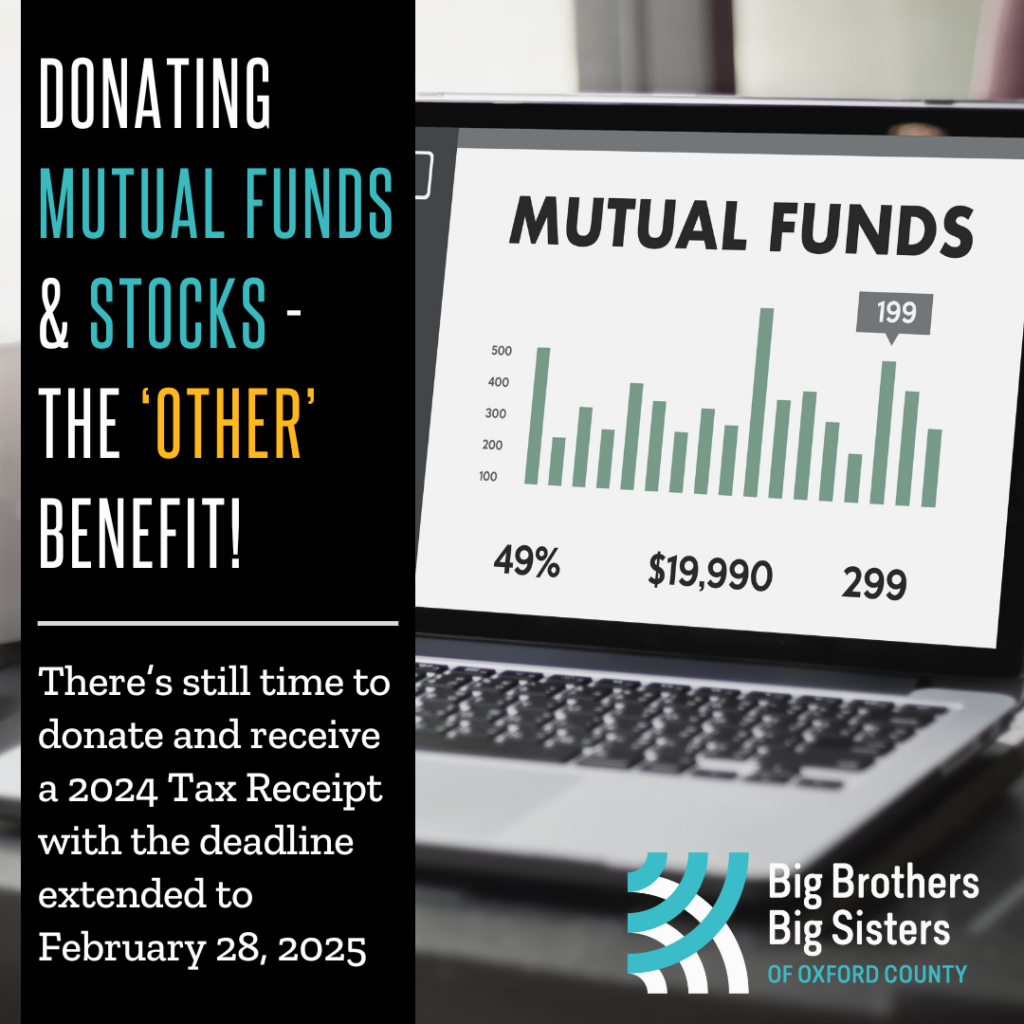Each year, million’s of Canadians reach into their pockets and give to organizations which hold a special place in their hearts. Most often, individuals gift cash, either that they’ve accumulated in their bank account, or by selling investments then gifting the proceeds to the charity. However, did you know that in 2006, the government made changes to tax rules which can make a donation less taxing to you? Let me explain, but don’t worry…we’ll keep it simple for now. We just want to get the general idea to you.

Let’s imagine you have shares/stocks or mutual funds which you’ve owned for a while and these are held outside of your RRSP, RRIF or Tax Free Savings Account. Let’s also imagine you paid $25,000 for these investments, and they’ve grown in value to $50,000. This means you have an unrealized gain of $25,000 (unrealized, because you haven’t sold the investment yet).
Let’s now imagine you’ve decided to make a large donation of $50,000 to that special charity. You have two options. One, you can sell the investments and give the cash to the charity. Doing so will trigger that capital gain, which will result in tax payable.
Option two is to give the investment directly to the charity. That means transferring the actual investment from your name to the charity without physically selling it. Here’s the benefit: when investments are transferred directly to a charity, there is NO capital gain triggered, so there is NO tax payable!
Under both scenarios, you will receive a tax receipt for the full value of the donation, in both cases being $50,000 however more is kept in your pocket by avoiding the capital gain under option 2.
Everybody’s situation is unique, so your individual circumstances need to be considered. If you have shares/stocks or mutual funds and are thinking about making a contribution to a charity, talk to your financial or tax advisor about the best option for you.
*The information in this publication should not be relied on as a basis for any decision or action and should not be used as a substitute for professional advice such as legal advice or tax. You should seek independent legal and/or tax professionals to get advice regarding your personal circumstances.*
This publication has been provided to BBBSOC through a local Financial Planner.
